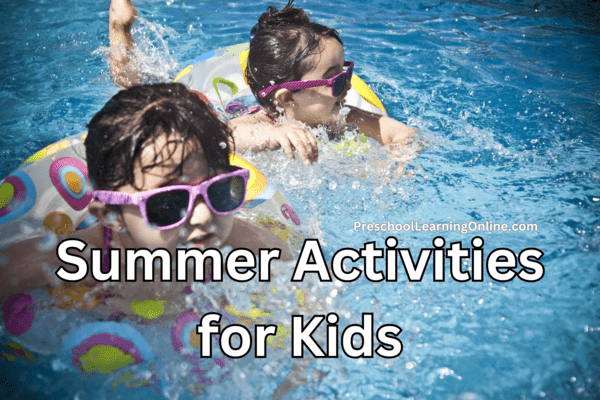
Introduction to Preschool
Preschool, often referred to as nursery school or pre-kindergarten, plays a crucial role in a child’s early development. It serves as a bridge between home and formal schooling, providing a nurturing environment where children can learn and grow.
What Age is Preschool?
Preschool typically caters to children between the ages of three and five years old. However, the specific age range can vary depending on factors such as local regulations, cultural norms, and individual program policies.
Variances in Age Across Countries
In some countries, preschool may begin as early as two years old, while in others, it may start closer to four or five. These variations reflect differences in educational philosophies, funding priorities, and societal expectations.
What is Preschool?
Preschool is more than just a place for children to play; it’s a structured learning environment designed to prepare young learners for formal schooling.
Purpose of Preschool
The primary goal of preschool is to foster holistic development, including cognitive, social, emotional, and physical growth. Through age-appropriate activities and interactions, children develop essential skills that form the foundation for future learning success.
Curriculum Overview
Preschool curriculum typically includes a mix of structured activities and free play, covering areas such as language and literacy, math concepts, science exploration, art, music, and physical education.
Benefits of Preschool Education

Preschool provides numerous benefits that extend far beyond academic achievement.
Socialization Skills
One of the most significant advantages of preschool is the opportunity for children to interact with peers and develop essential social skills such as cooperation, communication, and conflict resolution.
Cognitive Development
Preschool activities stimulate cognitive development by encouraging critical thinking, problem-solving, and creativity. Children learn to explore their environment, ask questions, and make discoveries independently.
Emotional Development
In a supportive and nurturing environment, children learn to identify and regulate their emotions, develop empathy and compassion, and build resilience in the face of challenges.
What Should Pre-K Students Learn?
Preschool curriculum focuses on laying the groundwork for future academic success while nurturing a love of learning.
Basic Academic Skills
Pre-K students learn fundamental academic skills such as letter recognition, phonics, counting, and basic math concepts. These skills provide a strong foundation for literacy and numeracy development.
Social Skills
In addition to academic learning, preschool emphasizes social skills such as sharing, taking turns, listening, and following directions. These skills are essential for successful interaction in group settings and forming positive relationships.
Emotional Regulation
Preschool helps children develop emotional regulation skills by teaching them how to express their feelings appropriately, manage frustration, and cope with disappointment. These skills are crucial for navigating social situations and handling conflicts effectively.
Different Approaches to Preschool Education
Preschool programs may follow different educational philosophies and teaching approaches, each with its own strengths and emphasis.

Play-based Learning
Play-based learning is a child-centered approach that recognizes the importance of play in children’s development. It encourages hands-on exploration, experimentation, and imagination, fostering creativity and problem-solving skills.
Montessori Method
The Montessori method emphasizes independence, self-directed learning, and individualized instruction. Children work at their own pace, choosing from a range of activities designed to promote exploration and discovery.
Reggio Emilia Approach
The Reggio Emilia approach emphasizes the role of the environment in learning, with a focus on project-based activities, collaboration, and documentation of children’s experiences. It views children as competent, curious learners capable of constructing their own knowledge.
Parental Involvement in Preschool Education
Parents play a vital role in supporting their child’s preschool experience and fostering continuity between home and school.
Importance of Parental Support
Parental involvement helps create a strong foundation for learning by reinforcing concepts taught in the classroom, providing additional opportunities for practice, and offering emotional support and encouragement.
Communication Between Parents and Teachers
Effective communication between parents and teachers is essential for monitoring a child’s progress, addressing any concerns or challenges, and collaborating on strategies to support learning and development.
Challenges Faced in Preschool Education
Despite the many benefits of preschool education, several challenges persist that impact access and quality.
Access to Quality Preschools
Access to quality preschools remains a significant concern, particularly for families in underserved communities or rural areas where options may be limited.
Funding and Affordability Issues
Preschool programs often face funding challenges, leading to disparities in resources and opportunities for children from different socioeconomic backgrounds. Affordability is also a barrier for many families, with tuition costs and fees prohibitive for some.
Tips for Choosing the Right Preschool
Choosing the right preschool is an important decision that requires careful consideration of various factors.
Location and Convenience
Consider the location of the preschool and its proximity to your home or workplace. A convenient location can make drop-off and pick-up easier and minimize stress for both you and your child.
Curriculum and Teaching Approach
Research the preschool’s curriculum and teaching approach to ensure it aligns with your child’s needs, interests, and learning style. Look for programs that offer a balanced mix of structured learning and play-based activities.
Reputation and Accreditation
Seek recommendations from other parents, visit the preschool to observe classrooms and interact with teachers, and inquire about accreditation or licensing.


